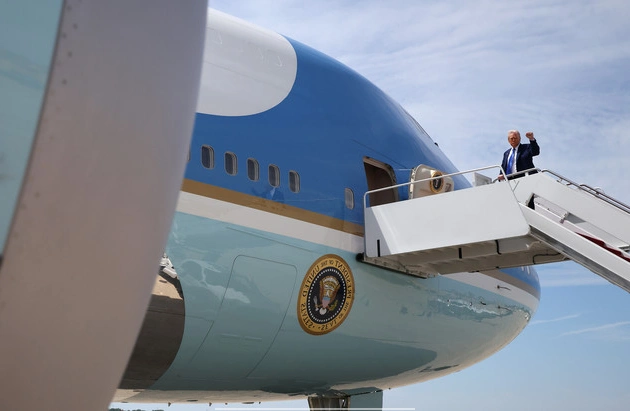
President Donald Trump’s proposal to accept a luxury jet from Qatar has sparked political controversy, creating a dilemma for lawmakers on Capitol Hill as they consider potential actions.
Political Divide
Trump’s decision has faced significant opposition, drawing criticism from Democrats and Republicans alike. Concerns regarding security risks, taxpayer expenses, and ethical considerations have been raised by various factions, including members of the president’s own party and his supporters.
Democratic Opposition
Democrats are exploring avenues to thwart the gift, such as introducing amendments to defense bills aimed at blocking the transaction. While garnering enough Republican support to challenge the president may be challenging, these efforts could still constrain the administration, pressure Qatar, and corner the GOP into a delicate political position.
Legislative Tactics
Congress could insert a provision in the annual National Defense Authorization Act to impede or restrict the jet’s acceptance. Such measures could influence negotiations between the House and Senate during bill reconciliations, potentially forcing Republicans to prioritize between supporting Trump or upholding national security standards.
Proposed Bills
Senate Minority Leader Chuck Schumer has proposed a bill prohibiting the use of a foreign aircraft for Air Force One, framing the issue as a significant national security threat intertwined with corruption concerns. Similar legislation has been introduced in the House to prevent federal funds from facilitating the transfer of a foreign-owned plane to the U.S. government or the president’s library.
Aviation Delays
Amid delays in the Air Force’s fleet replacement program, Trump advocated for the Qatari plane as a temporary cost-effective solution. Lawmakers focused on defense matters may push for expedited delivery of the replacement planes, especially if apprehensive about the security implications associated with a Qatari aircraft.
Legislative Resistance
Senator Chris Murphy seeks to block a $1.9 billion arms sale to Qatar as a form of protest against the aircraft gift. While halting such sales via joint resolution has not been successful historically, the resolution serves as a diplomatic lever to pressure Doha.
Political Maneuvers
Democrats could disrupt Pentagon nominations to voice their objections to the jet deal, although this tactic may only pose additional procedural obstacles. Additionally, invoking the Foreign Emoluments Clause as a constitutional argument against the gift signifies a strategic move by House Democrats to challenge the acceptance of the plane without congressional authorization.
Conclusion
The debate surrounding Trump’s potential acceptance of Qatar’s plane gift underscores the complex intersection of politics, national security, and constitutional principles. As Congress navigates these challenges, the outcome could significantly impact diplomatic relations and the administration’s accountability.











